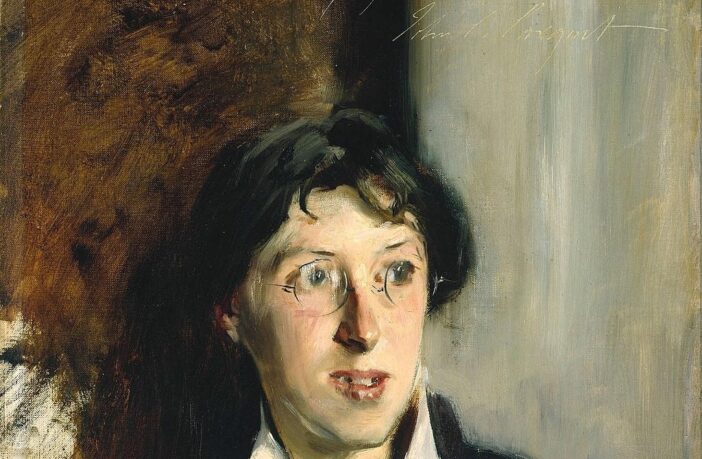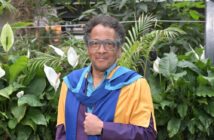Academics at The Open University are shining a spotlight on the intriguing Vernon Lee – a brilliant woman, prolific writer, anti-militarist and a philosopher ahead of her time yet someone barely mentioned today.
She is probably best known for her supernatural Gothic fiction, while her work on psychological aesthetics and empathy particularly, was somewhat forgotten yet it is worthy of note today, says Derek Matravers, Professor of Philosophy at The Open University.
On Friday, 26 January, at 12 noon, Derek and a group of colleagues are staging a roundtable discussion about Lee and her views on empathy, aesthetics, pacifism, heroism and waste.
Derek explains that Lee was no social conformist. She was born Violet Paget into a wealthy British family living in France in 1856 and chose the first name Vernon because it encouraged ambiguity about her gender.
She dressed in clothes considered masculine for the era and it’s well known that she had at least three significant relationships with women throughout her life.
Cultural influences
Lee was fluent in five languages and a long-time resident of Florence, Italy, until her death in 1935. While there, she immersed herself in culture by regularly visiting the churches, galleries and museums of the city and across Europe.
By the late 1880s, she started to look at the psychological and physiological effects that art had on the body.
It is said she opined:
“What is a work of art? What does it do for us, or rather do with us?”
What she meant, says Derek, is she was interested in people’s response to art and the factors that influence them while looking at, or experiencing art.
Ably assisted by companion Clementina “Kit” Anstruther-Thomson, a painter, Lee would note Kit’s physical reaction to a sculpture, which might include a quickening of her breath, a change in bodily posture, or a mood swing.
“Beauty and Ugliness”
Together, they wrote an essay in 1879 called “Beauty and Ugliness” that said looking at great works of art prompted “feelings of vivid fellowship” that could make the watcher “feel more keenly alive”.
She was talking about the relationship between art and the physical and spiritual health of the body – something that is well recognised today. This led her to explore the concept of empathy.
Lee was interested to connect the reactions people had when looking at a picture: if they felt gloomy while viewing it, how might that influence what they went on to say about it, for instance describing the picture itself as melancholy.
It wasn’t until Derek was writing a book on empathy in 2017 that he stumbled across her.
“She was one of the early theorists on empathy,” he said, a word which was only coined in 1909: a translation from the German word ‘Einfühlung’ meaning ‘feeling into’.
He said ‘empathy’ dropped out of the public consciousness until the 1960s:
“and then it really takes off quite recently and now empathy is bandied about everywhere”.
“But because she didn’t really have a professional standing Lee was largely ignored, although she got a lot of stuff spot on with two hot topics in philosophy today: empathy and ‘embodied cognition’ – the idea that getting to know the world is not simply a matter of noticing things, but a matter of acting with our bodies in our environment.
“There are not a lot of philosophers you can read from the 1900s and learn much that you don’t already know. So yes, it would be accurate to say she was ahead of her time,” said Derek.
Vernon Lee, Polymath and Anti-War Activist is being held at 12 noon on Friday 26 January. If you would like to attend contact FASS-SSGS-Research-Centre@open.ac.uk for information.



